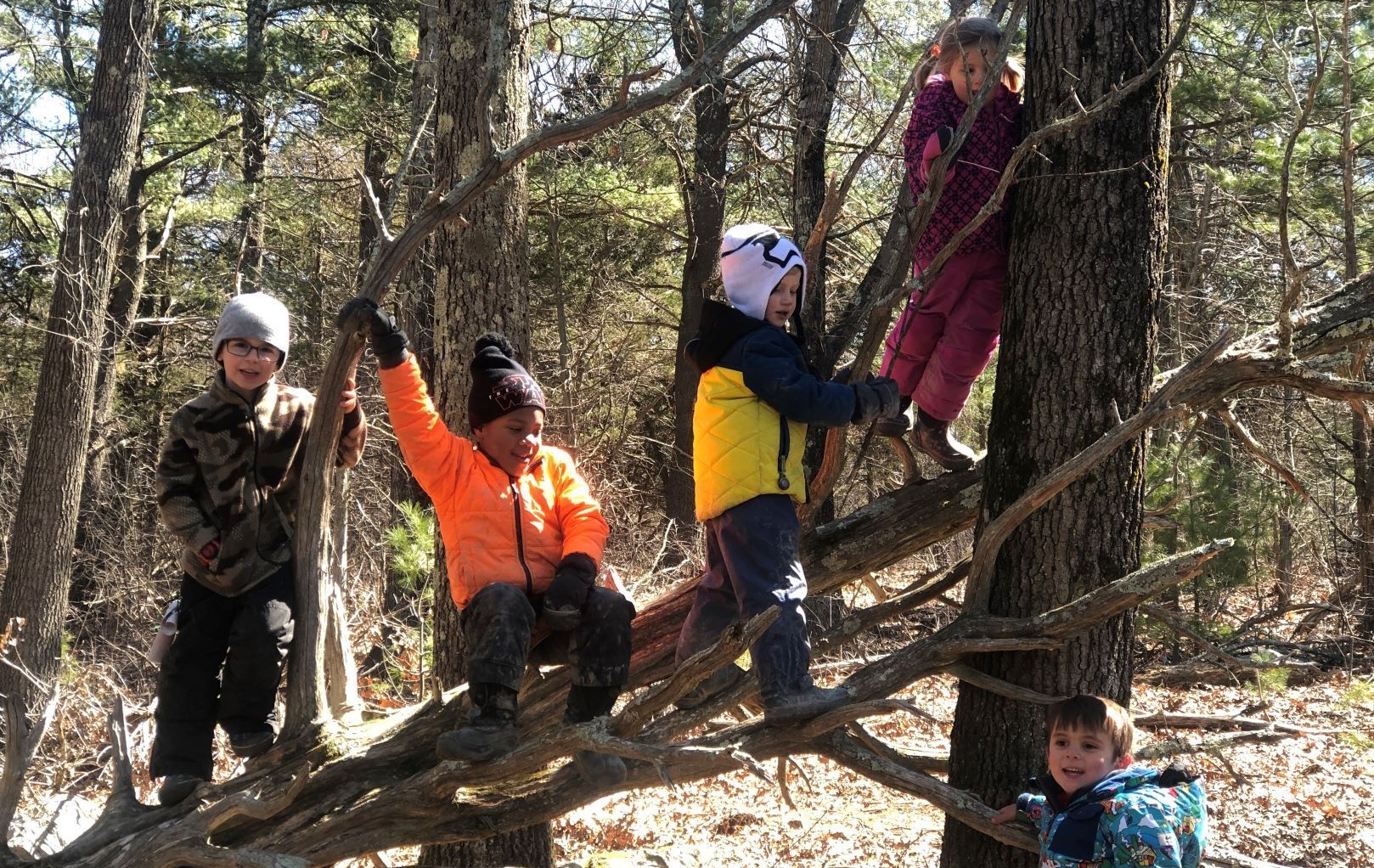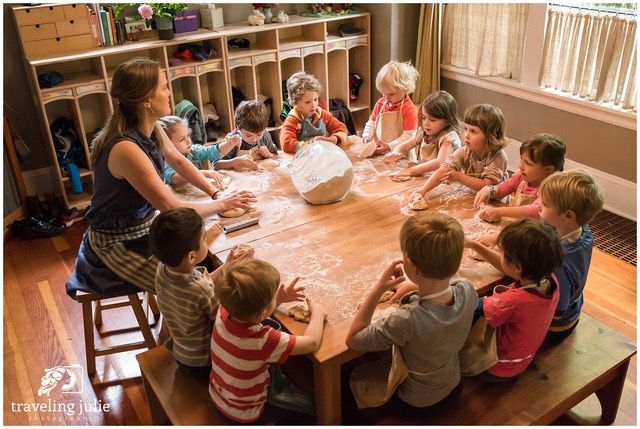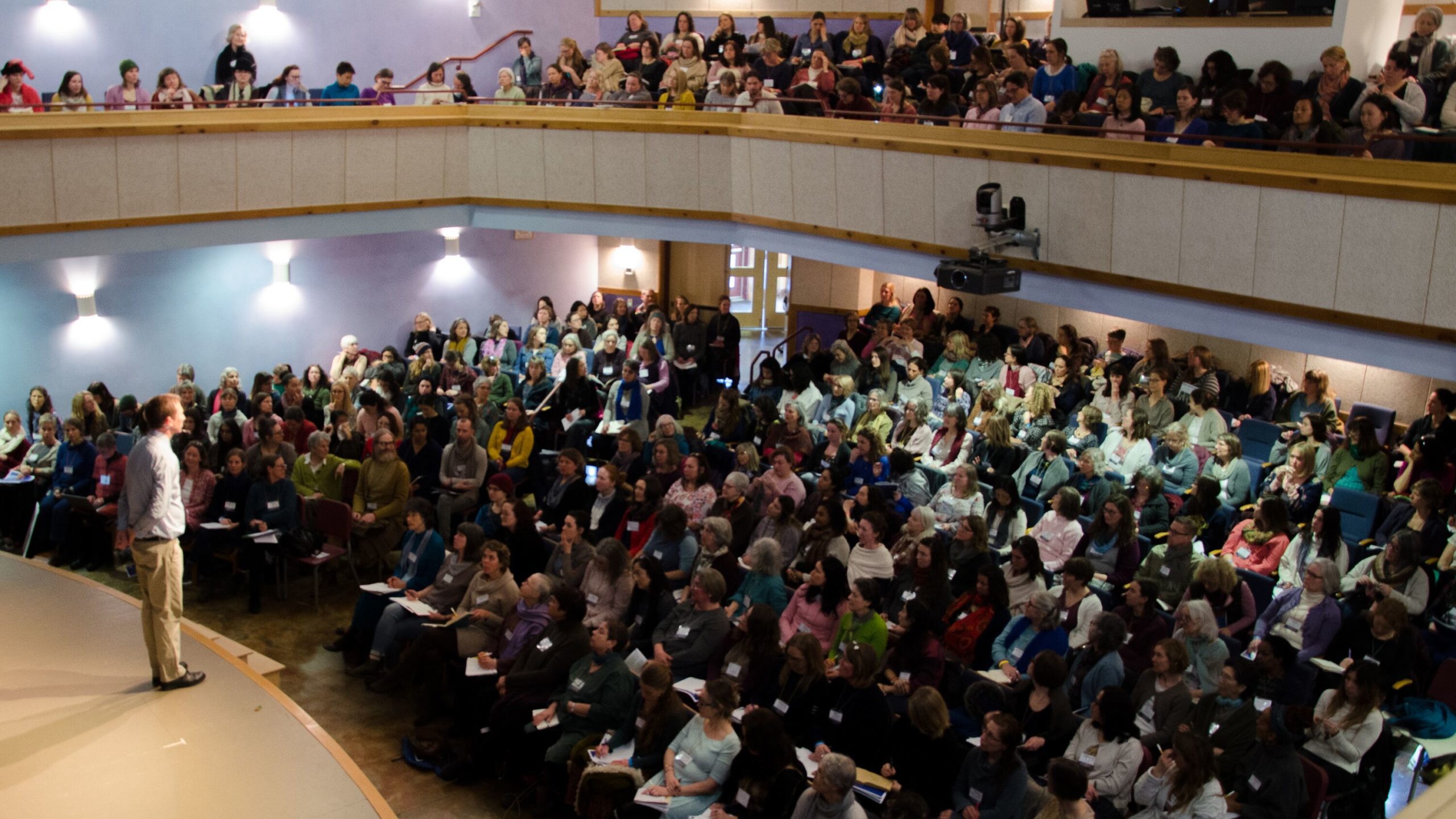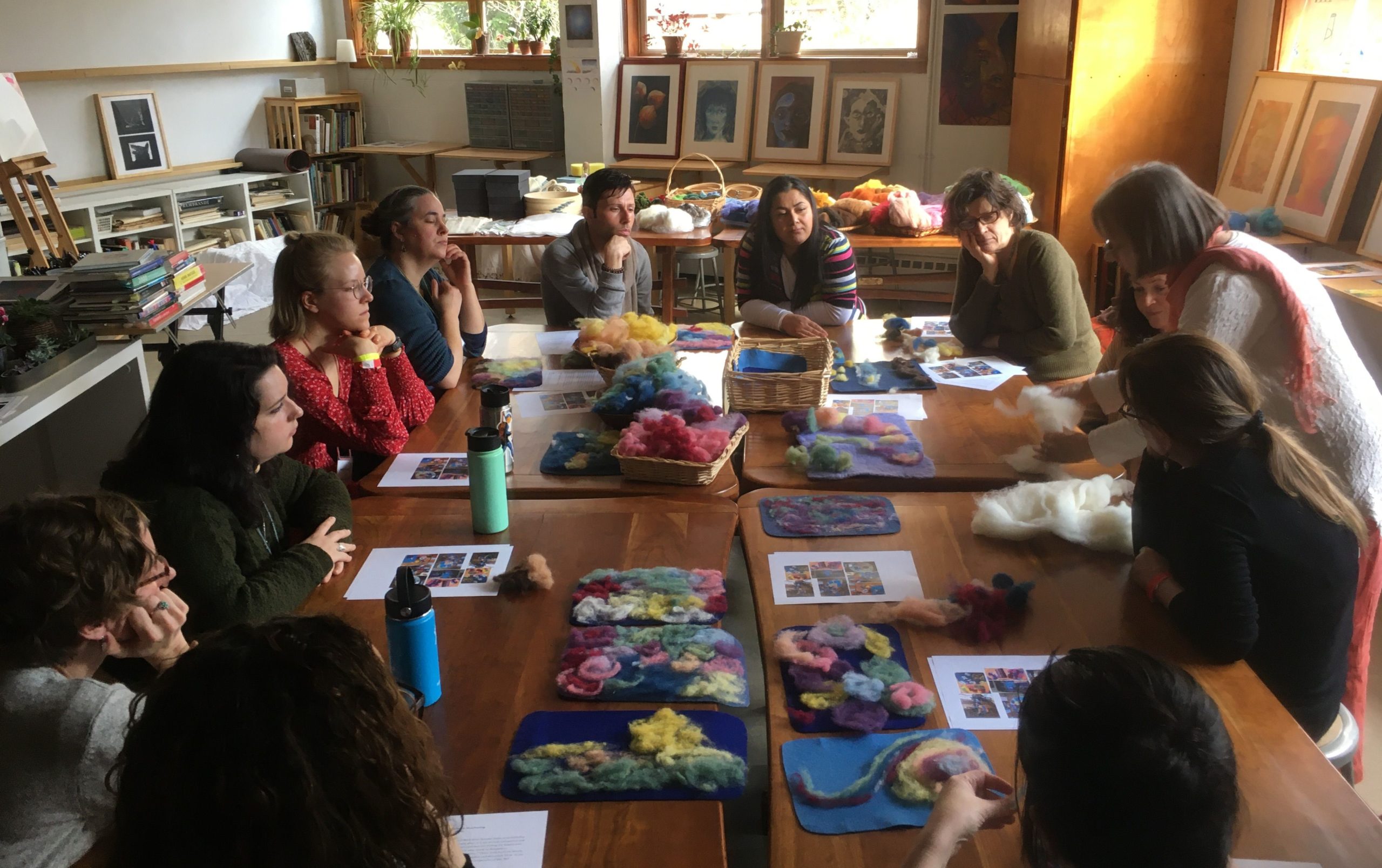Waldorf education came to the United States when the Rudolf Steiner School in New York City opened in 1927. The main growth of the movement began in the late 1960s, and the number of Waldorf schools and kindergartens increased from nine in 1967 to nearly 200 today, including kindergartens, nursery or pre-school groups, parent-child, parent-toddler and parent-infant classes, extended care and after-school programs, and child care programs in homes and centers.
Waldorf schools and kindergartens in the US do not generally receive financial support from the government. This has meant a great degree of freedom from government regulation, as well as financial and social challenges.
Working together. The Waldorf Kindergarten Association was founded in 1983; the Association changed its name in the late 1990s to the Waldorf Early Childhood Association of North America (WECAN). WECAN’s activities are guided by its board, composed of experienced Waldorf educators and trainers, and carried out by its mostly part-time staff, including two co-directors, an administrator, a publications coordinator, a communications coordinator, and coordinators for teacher education and membership. Twenty-one regional representatives facilitate activities within regions.
In addition to conferences and gatherings within the regions, WECAN hosts major conferences each February in Spring Valley, New York. WECAN also actively publishes Gateways, a twice-yearly newsletter, and a wide variety of books for Waldorf early childhood educators and parents. There are working groups on public policy, the child from birth to three, teacher education, digital media, and inclusion, diversity, equity, and access (IDEA).
WECAN works closely together with the Association of Waldorf Schools of North America (AWSNA) as well as with the Alliance for Public Waldorf Education. AWSNA and WECAN work on a continental rather than a national basis, with members in the US, Canada, and Mexico. WECAN is also an active member of IASWECE.
Training. Everyone leading a group of children in a Waldorf early childhood setting is expected to have completed a Waldorf early childhood teacher education program. There are 14 early childhood teacher education programs and institutes in North America. Seven are Full Members and seven are Associate Members of WECAN. All work with the IASWECE Guidelines and WECAN Shared Principles for Waldorf early childhood teacher education. All offer part-time, low-residency training courses, often with 2-3 week intensive courses in the summer and shorter week-long or weekend courses throughout the school year, over two to three years. All offer a Waldorf certificate or diploma; one program is in partnership with a state university master’s degree. The training programs collaborate through a membership path that includes self-study and peer review through site visits.
Susan Howard is Co-Director of WECAN and a member of the IASWECE Coordinating Group
Waldorf Early Childhood Association of North America (WECAN) website





